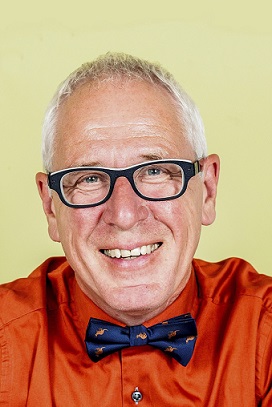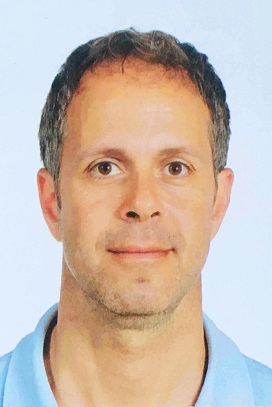The Shift Towards Well-being and Full Citizenship or:
from neurodiversity to neuroharmony
Abstract:
Outcome studies in autism have focused mainly on more ‘objective’ measures of outcomes, such as cognitive and academic functioning, health, employment, living situation, quantitative and qualitative measurements of relationships, and measurements of autistic symptoms. These reflect an approach primarily based on a medical model of disability?
But what about the one thing all human beings desire: a healthy and happy life?
Wellbeing has received (too) little attention in the autism field and if it was addressed, it has been from a rather negative perspective. Most studies into the wellbeing of autistic people have focused primarily on the lack of emotional wellbeing, i.e. the presence of mental health problems. But what if we would take a more positive approach and focus not on the prevention of negative feelings but, inspired by the principles of positive psychology, on the initiation and encouragement of positive feelings?
The time has come to make a U-turn in our approach and to start targeting those things that help autistic people in achieving a happy, healthy and empowered life. The reason is simple: happy and healthy autistic people are not just needing support from society, they contribute to society, just as any other happy and healthy citizen. Let’s move from a medical model to a citizenship model of disability.
In this lecture we will explore some of the ways that can help autistic people to become happy citizens. And we will illustrate this with the story of Thijs, a boy we diagnosed back in the eighties and now a happy citizen. His story will show how we can move from neurodiversity to neuroharmony, an inclusive world where autistic and non-autistic citizens are living in harmony.
Speaker:

Dr Peter Vermeulen
Master in Psychology and Pedagogical Sciences at the University of Leuven, Belgium (1985) and PhD in Psychology and Pedagogical Sciences at the University of Leiden, The Netherlands (2002). From 1987 till 1998 working for the Flemish Autism Association, first as home trainer for families with a child with autism, later as director of the home training centre and finally as trainer / lecturer. Since 1998 working as senior autism consultant / lecturer /trainer at Autism in Context. Founder and director of ‘Autism in Context’.Chief Editor of "Sterk! In autisme" (Strong in autism), bi-monthly magazine of Autism in Context. Wrote over 150 articles on autism and is author of more than 15 books with translations into more than 10 languages, a.o. "This is the title: on autistic thinking” (2001), “I am Special: handbook for psycho-education” (2000, revised edition 2013), and “Autism as context blindness” (2012), a book than won several awards in the USA.Received in 2019 the Passwerk Life Time Achievement Award for his more than 30 years contribution to the autism community in Belgium.
Children with ASD/Developmental Delays in Humanitarian Emergencies
Abstract:
UN figures estimate 48 million children are impacted by humanitarian emergencies, including armed conflict and natural disasters. Within this population, autistic children are at further risk for poor outcomes related to health, mental health, physical injury, and maltreatment. Limited resources are allocated to meet their needs in both the acute phase of emergencies and in longer term settings (e.g., during permanent resettlement in higher income countries), further compounded by limited research-based evidence of best practices to identify and support them.
As a global community of professionals and advocates (including families and self-advocates) who care about autistic people, we can all play an important role supporting these children and their families. In this keynote, I look forward to sharing with you some initiatives I have been engaged in, as well as highlighting the work of other professionals and organizations. The humanitarian space is complex and challenging to navigate. However, with persistence and collaborative work, we can make difference that lasts a lifetime.
Speaker:

Dr. Ramzi H. Nasir, MD MPH
Dr Nasir is a Developmental-Behavioral Pediatrician who trained at Boston Children’s Hospital and the Harvard School of Public Health. He currently practices in London, UK as a pediatrician in the National Health Service and in private practice. Dr Nasir’s primary clinical practice is focused on children with autism and related conditions. While at Boston Children’s Hospital, he served as principal investigator in clinical trials for the pharmacological treatment of core autism symptoms and collaborated on research projects studying the genetics of autism and related conditions. In London, he has several leadership roles developing autism services at the Royal Free London NHS Foundation Trust and the Portland Hospital for Women and Children. Driven by his own childhood experiences in war-torn Palestine and Jordan, Dr Nasir is active in efforts to improve clinical care for children with developmental conditions in humanitarian settings. In addition to lecturing widely on the topic, he serves as a clinical consultant and advisor to humanitarian organizations such as Doctors without Borders and Medical Aid for Palestinians. He has also led training workshops including a special interest group at the International Society for Autism Research (INSAR), authored 2 book chapters on the topic and is active in several global advocacy efforts.

